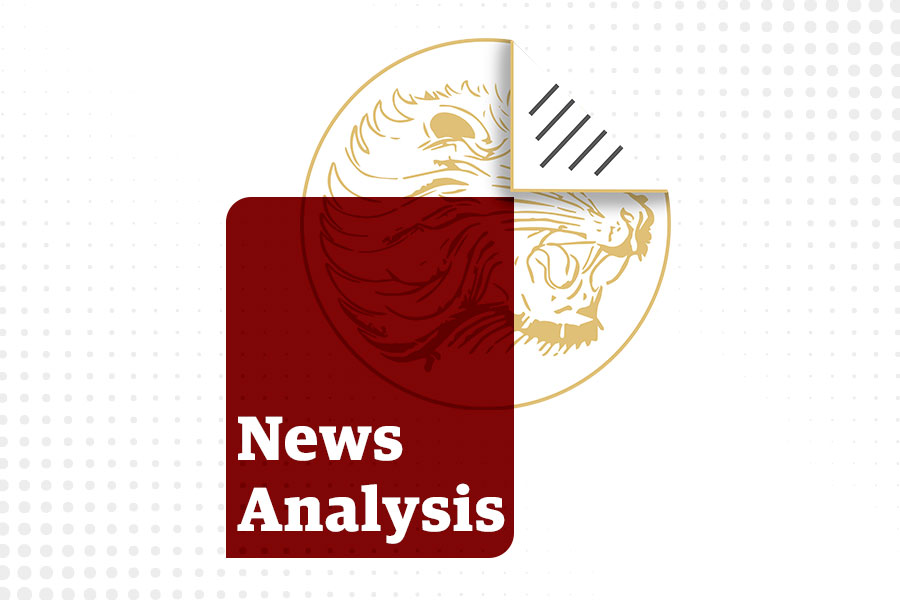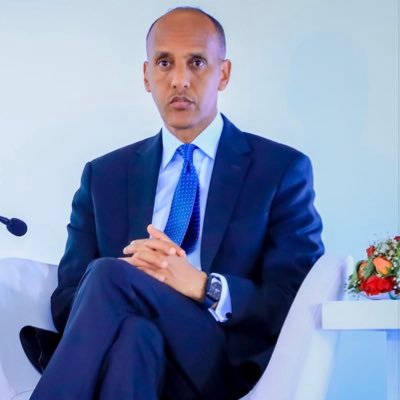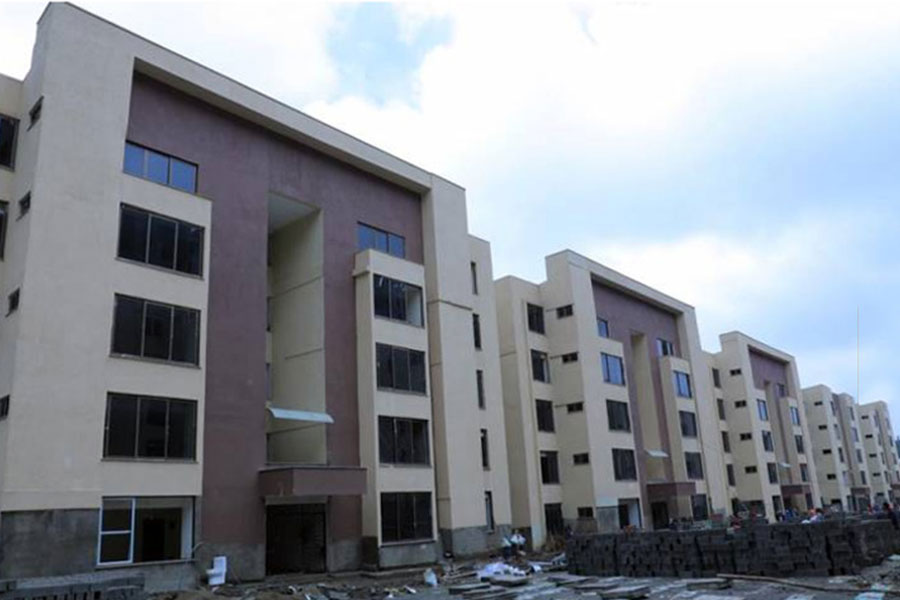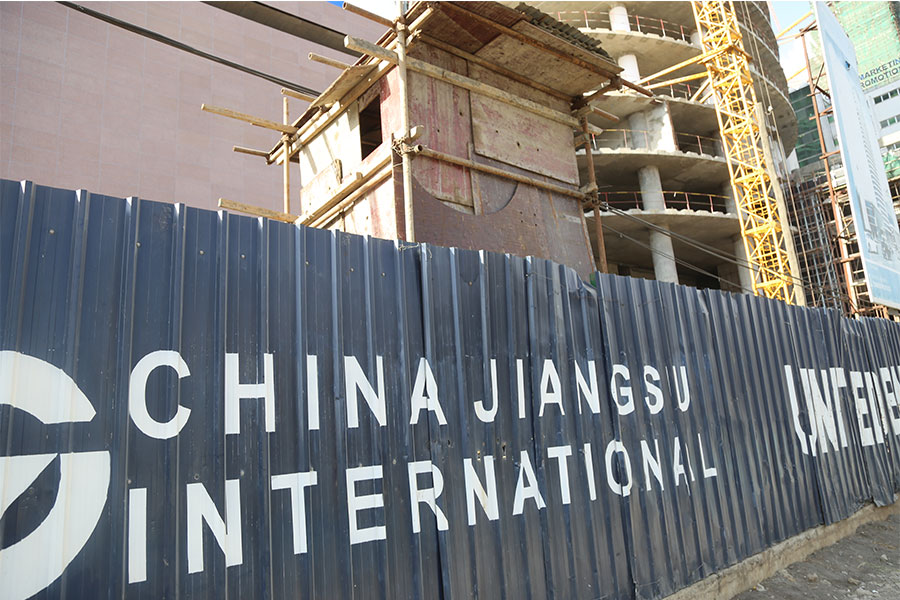
Viewpoints | Mar 14,2020
Mar 2 , 2019
By Eleni Z. Gabre-Madhin (PhD)
From privatisation to the announcement of a stock exchange, the changes taking place in the Ethiopia of today are dizzying and radical. But are things really changing as much as we need them to, asks Eleni Z. Gabre-Madhin (PhD), chief happiness officer of BlueMoon.
Just about a decade ago, in the heady days of setting up what we declared was Africa’s first-of-its-kind commodity exchange, I remember one day deciding to start our management team meeting by blasting Sam Cooke’s classic song on my phone.
“I was born by the river, in a little tent, and just like the river, I’ve been runnin’ ever since. It’s been a long time, a long time coming. But I know a change gonna come, oh yes it will,” it went.
How often I would go back to that song, clinging to it like an anthem, believing in the impossible, and working with all my heart.
Change certainly did come, as Ethiopia did get a shiny modern new commodity exchange, ECX, and our warehouses grew from one to 55, our members to over 300 and trading to 1.4 billion dollars a year.
Yet in many ways, change did not come fast enough. We held negotiations lasting months with the government’s legal team and senior officials on the draft proclamations we forwarded to establish the commodity exchange and its regulating authority. Held in stuffy windowless government meeting rooms, lasting six, seven, even eight hours, we won quite a few battles, but we lost some major ones too.
This included the battle about our wording concerning the trading of “instruments” such as commodity-backed receipts, along with bonds, securities and notes. We were asked “why instruments?” and politely but firmly told it appeared we were trying to bring unwanted language about stock trading, and the article was amended to allow only trading of commodity warehouse receipts.
Similarly, our push for a regulatory commission with full independent powers that could license and regulate multiple exchanges was replaced by the idea of a regulator under a ministry set up for the sole purpose of regulating a single commodity exchange.
Perhaps the hardest defeat of all was the government’s intransigent position on its sole ownership of the exchange, despite our insistence that it be at least partially, if not fully, owned by private investors.
While history was made as the exchange brought massive changes to the order of things, much more could have been achieved were it not for restrictions on the trading of derivatives or futures contracts that would have enabled price risk hedging and restrictions on private warehouse operators and foreign-owned logistics firms.
Fast forward a decade to the Ethiopia of today, when dizzying and radical changes are taking place so much that it is hard to keep up.
But are things really changing as much as we need them to?
Let us start with the announced and much-heralded privatisation of telecommunications and other major government-owned enterprises, such as the national flagship carrier and the shipping lines.
While we still await details on how this privatisation will unfold, my instincts as a former World Bank economist suggest the need for clarity on what we are trying to achieve. We all know a vibrant telecoms sector will unlock dramatic possibilities in e-commerce, financial inclusion, technology transfer, innovation, and the dream of a digital Ethiopia, transforming almost every industry.
Privatisation, which is a change of ownership from state to partial or full private ownership, is a step forward in bringing capital injection and management know-how. But it is not sufficient in and of itself to bring the benefits we need.
Rather than stopping at switching from one form of monopoly to another, we need real competition, through a much more profound liberalisation of the telecoms sector. This can be achieved by issuing licenses to additional operators, which will provide an impetus to improve services and drive down fees.
Another of the much anticipated economic reforms is a stock exchange, announced to be established in 2020. As an exchange specialist, trained in the study of markets, I am elated that this day will soon dawn.
Again, though, a note of caution. Three decades ago, setting up stock exchanges around Africa was a major preoccupation of the Bretton Woods institutions. We now see a continent of rather lacklustre stock exchanges, largely illiquid, and with few exceptions, growing in a very limited way as they are only weakly linked to the fundamentals of the economies in which they exist.
Notably, Ethiopia’s commodity exchange has a daily trading value over 10 times that of the Ghana Stock Exchange, and seven times that of the Nairobi Securities Exchange. The Dar es Salaam Stock Exchange only trades a few days a week and takes five days to clear payments compared to next-business-day settlement on ECX.
What explains this?
It has to do with design and lack of alignment of the stock exchanges to the underlying economy. In most African countries, and even post-Soviet Eastern Europe, stock exchanges were set up as showpieces of a capitalist economy rather than being designed to innovatively enable a broad range of companies to list their shares and transparently achieve market valuations.
A stock exchange is part and parcel of the financial sector. If we want a vibrant and transformational stock exchange that allows companies to raise capital from the population at large with price discovery that is transparent and real, then the financial sector as a whole must be aligned.
We would need critical reforms and efforts in the licensing and regulation of investment brokers, dealers, investment banks, advisors, market maker funds, risk management mechanisms, market surveillance, market analytics and business intelligence. Along with audit capacity, capital flows, payment systems, and the establishment of central depositories and real-time clearing and settlement.
The US securities law is over 1,000 pages long and evolved over 122 years. And it is still not done.
Can we catch up?
Of course, we can, and leapfrog to boot. But we must not make the mistake that a stock exchange in name results in the benefits we want. Our stock exchange development cannot be in isolation of significant financial sector reforms, nor in isolation of a concerted program of university-level financial literacy training and development.
If I were to build a stock or commodity exchange today, I would make sure the regulator was strong, independent, and well-trained, with a single commission for both markets since there is a fuzzy line where commodity futures stop and single-stock futures start. I would seek private exchange ownership in a fully demutualised structure with proper single-investor limits.
I would build it with an SME track so that the economy’s actual fundamentals were reflected with mobile payments and mobile trading systems hard-wired in. And I would build it on blockchain and even cryptocurrency.
And that would bring the change Sam Cooke was singing about. Speaking of change, I want to talk about startups and truly starting up Ethiopia. But that is for another read.
PUBLISHED ON
Mar 02,2019 [ VOL
19 , NO
983]


Viewpoints | Mar 14,2020

News Analysis | Aug 28,2021

Verbatim | Jul 13,2025

Fortune News | Jun 01,2019

Viewpoints | Aug 27,2022

Life Matters | Feb 08,2020

View From Arada | Feb 16,2019

My Opinion | Nov 13,2021

Viewpoints | Aug 17,2019

My Opinion | Mar 14,2020

My Opinion | 132105 Views | Aug 14,2021

My Opinion | 128507 Views | Aug 21,2021

My Opinion | 126435 Views | Sep 10,2021

My Opinion | 124046 Views | Aug 07,2021





Dec 22 , 2024 . By TIZITA SHEWAFERAW
Charged with transforming colossal state-owned enterprises into modern and competitiv...

Aug 18 , 2024 . By AKSAH ITALO
Although predictable Yonas Zerihun's job in the ride-hailing service is not immune to...

Jul 28 , 2024 . By TIZITA SHEWAFERAW
Unhabitual, perhaps too many, Samuel Gebreyohannes, 38, used to occasionally enjoy a couple of beers at breakfast. However, he recently swit...

Jul 13 , 2024 . By AKSAH ITALO
Investors who rely on tractors, trucks, and field vehicles for commuting, transporting commodities, and f...

Jul 12 , 2025
Political leaders and their policy advisors often promise great leaps forward, yet th...

Jul 5 , 2025
Six years ago, Ethiopia was the darling of international liberal commentators. A year...

Jun 28 , 2025
Meseret Damtie, the assertive auditor general, has never been shy about naming names...

Jun 21 , 2025
A well-worn adage says, “Budget is not destiny, but it is direction.” Examining t...

Jul 13 , 2025 . By YITBAREK GETACHEW
The Addis Abeba City Revenue Bureau has introduced a new directive set to reshape how...

Jul 13 , 2025 . By BEZAWIT HULUAGER
Addis Abeba has approved a record 350 billion Br budget for the 2025/26 fiscal year,...

Jul 13 , 2025 . By RUTH BERHANU
The Addis Abeba Revenue Bureau has scrapped a value-added tax (VAT) on unprocessed ve...

Jul 13 , 2025 . By NAHOM AYELE
Federal lawmakers have finally brought closure to a protracted and contentious tax de...